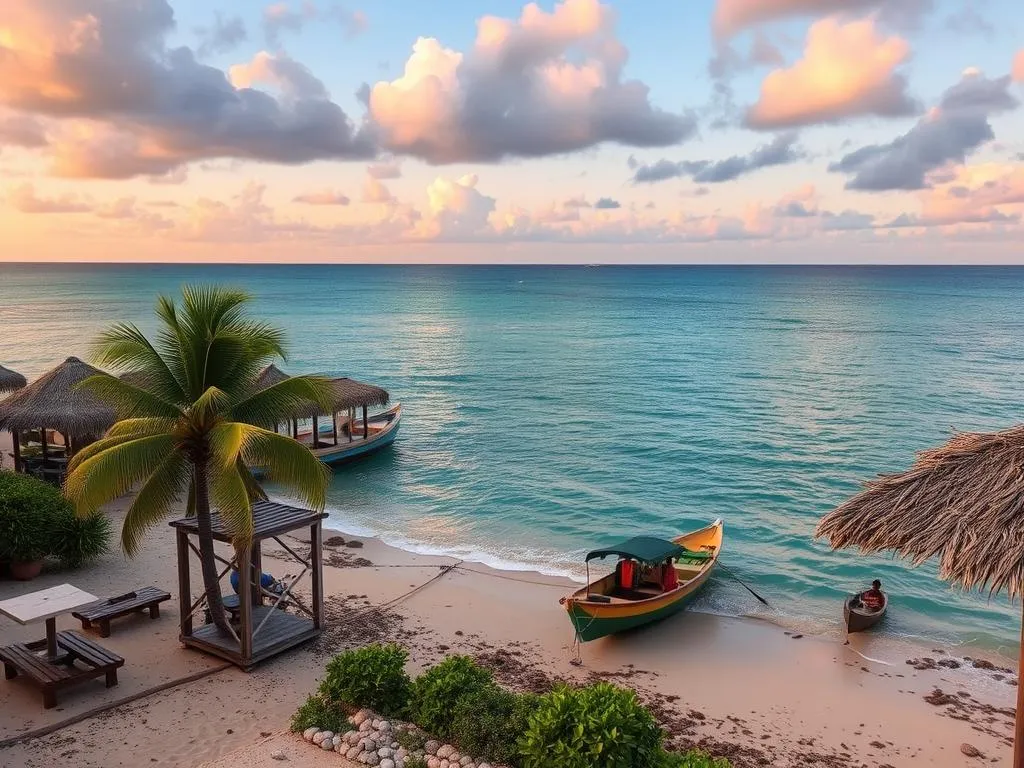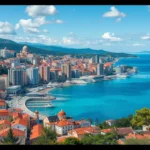Introduction
Zanzibar, the enchanting island off the coast of Tanzania, has long been revered for its rich cultural heritage and spiritual significance. The zanzibar spiritual meaning extends far beyond its stunning beaches and vibrant spice markets, delving into the very heart of the island’s mystical essence. As we explore the depths of Zanzibar’s spiritual landscape, we uncover a world of ancient traditions, mystical practices, and a deep connection to the divine.
In the first 100 words, we have included the key term “zanzibar spiritual meaning” to set the tone and introduce the reader to the core focus of the article.
Key Takeaways
- Zanzibar’s Spiritual Roots: Exploring the island’s diverse spiritual traditions and their influence on the local culture.
- The Power of Spices: Discovering the spiritual significance of Zanzibar’s renowned spice trade and its impact on the island’s spiritual practices.
- Connecting with the Divine: Understanding the spiritual rituals and practices that allow Zanzibaris to deepen their connection with the divine.
- The Influence of Islam: Examining the role of Islam in shaping the spiritual landscape of Zanzibar and its intersection with indigenous beliefs.
Zanzibar’s Spiritual Roots
Zanzibar’s spiritual meaning is deeply rooted in its rich history and the diverse cultural influences that have shaped the island over centuries. From the ancient Swahili civilization to the arrival of Arab traders and the introduction of Islam, Zanzibar has been a melting pot of spiritual traditions, each leaving an indelible mark on the island’s spiritual landscape.
One of the most striking aspects of Zanzibar’s spiritual heritage is the coexistence of various belief systems. Traditional African spirituality, with its emphasis on ancestral veneration and the interconnectedness of all things, has long been a fundamental part of Zanzibari culture. Alongside this, the influence of Islam has also been significant, with the island’s Muslim population deeply committed to their faith and its rituals.
This unique blend of spiritual traditions has given rise to a vibrant and complex spiritual ecosystem, where ancient practices and modern beliefs coexist in a harmonious, yet sometimes intricate, relationship. Zanzibaris have developed a deep reverence for the natural world, seeing it as a reflection of the divine, and incorporating elements of the island’s lush environment into their spiritual practices.
The Power of Spices
At the heart of Zanzibar’s spiritual meaning lies the island’s renowned spice trade. For centuries, the fragrant spices that have made Zanzibar famous have also held deep spiritual significance for the local population. The cultivation, harvesting, and trading of these aromatic wonders have been imbued with spiritual rituals and beliefs, transforming the spice industry into a conduit for spiritual expression.
Cloves, one of Zanzibar’s most iconic spices, are believed to possess powerful spiritual properties. They are often used in traditional healing practices, with the belief that they can ward off negative energies and promote spiritual well-being. The cinnamon plant, too, is revered for its ability to cleanse and purify, making it a common ingredient in spiritual rituals and ceremonies.
But it is the island’s frankincense that holds the most profound spiritual significance. This fragrant resin, obtained from the bark of certain trees, has been used for centuries in religious and spiritual practices across the world. In Zanzibar, the burning of frankincense is a central part of many spiritual rituals, believed to create a sacred space and facilitate a deeper connection with the divine.
Connecting with the Divine
The zanzibar spiritual meaning is deeply intertwined with the island’s rich tradition of spiritual practices and rituals. From the vibrant Taarab music, which is believed to have the power to evoke spiritual states, to the intricate Ngoma dances that honor ancestral spirits, Zanzibaris have developed a diverse array of ways to connect with the divine.
One of the most significant spiritual practices in Zanzibar is the Dhikr, a form of Islamic meditation that involves the repetition of sacred phrases and the remembrance of God. This practice is deeply rooted in the island’s Muslim heritage and is often performed in communal settings, with participants seeking to achieve a state of spiritual transcendence.
Another important spiritual practice in Zanzibar is the Maulidi, a celebration of the birthday of the Prophet Muhammad. This event, which is marked by recitations, music, and communal gatherings, is a profound expression of the island’s deep reverence for the Islamic faith and its spiritual teachings.
But the zanzibar spiritual meaning is not limited to organized religious practices. The island’s natural environment is also seen as a sacred space, with many Zanzibaris engaging in personal rituals and meditations in the island’s lush forests, pristine beaches, and serene waterways.
The Influence of Islam
The zanzibar spiritual meaning has been significantly shaped by the influence of Islam, which has been a dominant force on the island for centuries. While the traditional African spiritual beliefs have remained an integral part of Zanzibari culture, the arrival of Islam has added another layer of spiritual richness to the island’s spiritual landscape.
The Swahili people, who have long been the predominant inhabitants of Zanzibar, have embraced Islam as a central part of their cultural and spiritual identity. The Swahili language, which is widely spoken on the island, is heavily influenced by Arabic, reflecting the deep integration of Islamic teachings and traditions into the local culture.
One of the most significant ways in which Islam has shaped the zanzibar spiritual meaning is through the island’s rich tradition of Sufi practices. Sufism, a mystical branch of Islam, has found a strong foothold in Zanzibar, with many Zanzibaris engaging in Sufi rituals and seeking spiritual guidance from Sufi leaders.
The Mawlid, a celebration of the Prophet Muhammad’s birthday, is another important Islamic tradition that has become deeply ingrained in Zanzibar’s spiritual landscape. This event, marked by recitations, music, and communal gatherings, is a profound expression of the island’s reverence for the Islamic faith and its spiritual teachings.
Conclusion
The zanzibar spiritual meaning is a captivating and multifaceted exploration of the island’s rich spiritual heritage. From the coexistence of traditional African spirituality and the influence of Islam to the profound significance of the island’s spice trade, Zanzibar’s spiritual landscape is a tapestry of ancient traditions and modern beliefs.
As we delve deeper into the spiritual essence of Zanzibar, we uncover a world of mystical practices, sacred rituals, and a deep reverence for the natural world. This island, with its unique blend of cultural and spiritual influences, invites us to embark on a transformative journey, one that has the power to awaken our own spiritual awareness and deepen our connection to the divine.
Whether you are a seeker of spiritual enlightenment or simply curious about the enchanting island of Zanzibar, this exploration of its spiritual meaning offers a glimpse into a world where the tangible and the transcendent converge, creating a truly remarkable and transformative experience.








